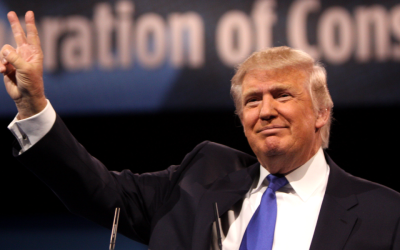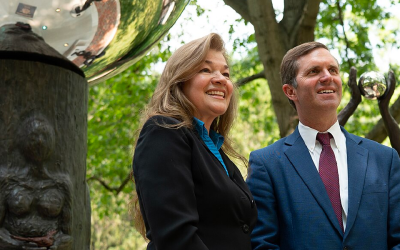While the Biden Justice Department will not bring charges against BLM activists who attacked federal buildings and seem to be giving a pass to pro-Palestinian insurrectionists who have invaded the U.S. Capitol, they are still going after conservatives.
It turns out that the Justice Department will not put up with mocking Hillary Clinton and is putting a pro-Trump Twitter activist in prison for seven months.
Ultimately, this conservative activist is going to prison for posting a meme a Judge and the Justice Department didn’t appreciate.
The official “crime” was election interference through social media posts, specifically, memes that have become a staple of the digital age’s political discourse.
Mackey’s troubles began when a series of memes, meant to be humorous and satirical, found their way to the public eye.
One such meme depicted a black woman with the caption, “Avoid the Line. Vote from Home,” and the instruction to “Text ‘Hillary’ to 59925.”
What’s essential to understand is that these posts were intended as satire, not as a serious attempt to sway voters.
Nonetheless, the consequences have been devastating for Mackey.
The sentencing was presided over by U.S. District Judge Ann M. Donnelly, an appointee of the Obama administration.
Donnelly, without doubt, struck the hearts of conservative Americans with her words, proclaiming Mackey’s actions as “nothing short of an assault on our democracy.”
But was it truly an attack on democracy or merely the exercise of freedom of speech in the digital age?
The Department of Justice argued that Mackey’s actions were designed to “injure, oppress, threaten, or intimidate” people from voting, a claim that has raised eyebrows among those who see it as an overreach of government power.
Attorney Erik David Paulsen passionately stated that “voting is the right that secures all other rights we hold dear,” but is imprisoning someone for satirical memes the best way to protect this right?
Mackey’s memes were undeniably provocative, and some would argue in poor taste, but they were not a direct attack on anyone’s right to vote.
Rather, they were a form of political commentary, a tradition dating back to the earliest days of American politics.
It’s concerning that in the age of social media, such creative and sometimes controversial expressions of political views are being stifled.
Mackey’s legal team, led by James Lawrence, has maintained that the memes were satirical and, therefore, should not be subject to legal action.
This case raises an important question about the limits of free speech and satire in the digital era.
If one can be sentenced to prison for humorous internet content, what does this mean for the future of political discourse and freedom of expression in America?
What’s even more alarming is the swift action taken against Mackey, which came just one week after President Joe Biden assumed office, four years after the 2016 election.
This raises concerns about the potential for political bias and selective enforcement of the law.
It’s worth noting that Mackey’s case is not unique.
In a climate where social media has become the battleground for political expression, many influential Twitter users have been accused of “disseminating fraudulent messages.”
However, it’s essential to distinguish between genuine attempts to manipulate voters and the use of satire as a form of political commentary.
The key question here is whether a seven-month prison sentence is a proportionate response to satirical memes.
Mackey’s lawyer, Andrew Frisch, argued that such a harsh punishment is unnecessary, while Paulsen defended it as a means to “send a message to the general public.”
But what kind of message does this send?
Is it one that promotes open and honest political discourse, or is it a message of fear and suppression?
Conservatives have also pointed to the case of comedian Kristina Wong, who produced a video urging Trump supporters to vote by text or on the day after the 2016 election.
Wong, who wore a MAGA hat and had Trump signs in her video, faced no consequences for her actions.
This disparity in treatment raises concerns about selective prosecution based on political affiliations.
In conclusion, the sentencing of Douglass Mackey for satirical memes is a cause for concern among conservatives who value free speech and the right to express their political beliefs.
While the memes may have been provocative, the punishment appears disproportionate and raises questions about the future of political discourse in America.
It is a stark reminder that we must defend our constitutional rights and protect the principles that have made this nation a beacon of free expression.






